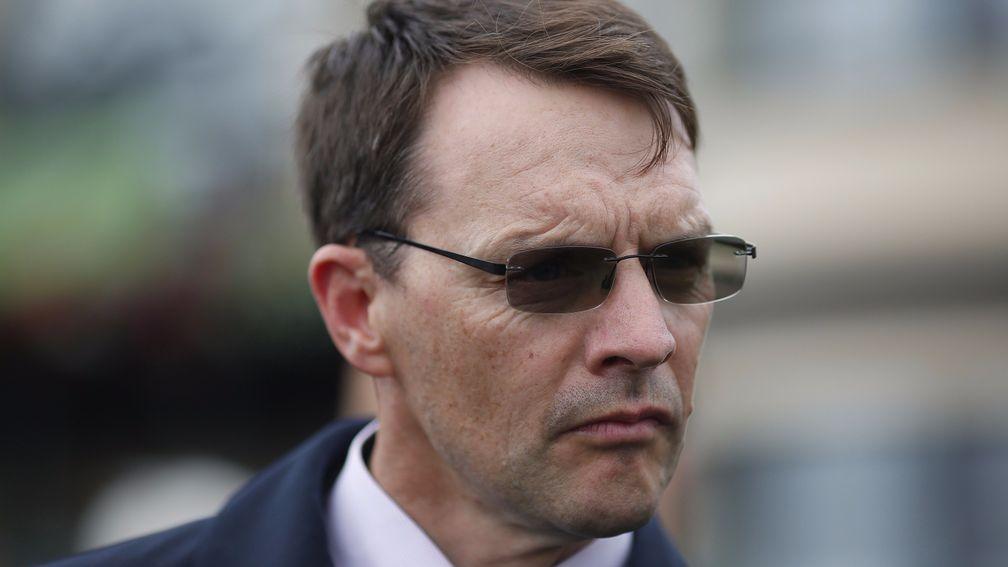Grassick: trainers are under threat from ruling over hours

The implications for racing yards could be catastrophic according to Irish Racehorse Trainers Association chief Michael Grassick if changes are not made to working hours exemption rules.
Grassick has backed the claims of champion trainer Aidan O’Brien that racing yards should be recognised as agricultural workplaces, allowing them to qualify for such exemptions.
Grassick first expressed his concerns about the matter in March when local county councils decided to vastly increase rates valuations on training yards after they had been re-categorised into the leisure sector.
The IRTA has lodged appeals on behalf of those trainers, and while that situation is ongoing, Grassick believes the latest Workplace Relations Commission investigation into Aidan O’Brien’s Ballydoyle stables off the back of the re-categorisation is a matter of the highest concern for his association.
He said: “Both the rates and the WRC implications could have a catastrophic impact on racehorse trainers and how they carry out their business across Ireland.
“We have got help from the Irish Business and Employers' Confederation (IBEC) and Horse Racing Ireland (HRI) and we are studying up on what way we are going to go next about the issue of rates.
“Trainers are not in a good place at the moment and the implications of this latest WRC investigation could be huge and it could change the way racehorse trainers operate.”
Since February 2015, following an amendment to the industrials relations act, racehorse training yards do not qualify for working hours exemptions that are allowed for in agricultural workplaces.
At the hearing earlier in the week, it was suggested that O’Brien employ two grooms per horse to ensure stable-staff are afforded sufficient down time, but Grassick has labelled such a suggestion as nonsensical.
He said: “We have an agreement with our stable staff who don't seem to have a problem with the wages or working conditions but it's the WRC who have a problem here.

"The idea of employing two grooms per horse is nonsensical and would signal the end for a lot of trainers as no owner could afford that.
“There is a certain level of give and take within this industry in that when you are busy, there is a possibility of working extra hours, but when you are not, you are allowed go home early. It is very much a seasonal occupation.
“Like a lot of other professionals in Ireland, we are finding it difficult to attract the right staff, and we can’t even find enough people to satisfy our current arrangements not to mention the prospects of introducing a situation whereby two grooms were to be employed per horse.”
He added: “We have to await the outcome of this case before we know what step we are going to take next. It is a huge worry for the industry. It has yet to be identified why we are not in agriculture. Nobody seems to be able to identify that, not even the department of agriculture itself.”
The IRTA made the original request to be removed from the agriculture joint labour committee whose powers were subsequently curtailed but never stated an intention to be re-classified under anything under agriculture.
Grassick reveals that there has been a breakdown in communication since that initial request.
He said: “We asked to be taken out of the agricultural JLCs because we weren’t able to work under the confinements of those JLCs. We did not ask to be taken out of agriculture.
“What happened then, was that those JLCs were found to be unconstitutional and that’s effectively the last that we heard on the matter. Something seems to have happened in between that the WRC have effectively taken us under their wing as such and we are no longer in agriculture.
“We cannot identify how that has happened. Unless we know how or why we are no longer placed under agriculture, it is very hard to deal with the situation that we are faced with.”
Published on inNews
Last updated
- Dubai World Cup card pushed back an hour due to forecast 39C on Saturday
- 'This is more than an awards ceremony, it is a heartfelt thank-you' - hard-earned celebration at York
- How the Big Punting Survey will help us to know more about you and your concerns
- Introducing Racing Post+, the new name for our digital subscriptions
- Cheltenham Ante-Post Pricewise has returned - unlock Tom Segal's top tips now with 25% off for six months
- Dubai World Cup card pushed back an hour due to forecast 39C on Saturday
- 'This is more than an awards ceremony, it is a heartfelt thank-you' - hard-earned celebration at York
- How the Big Punting Survey will help us to know more about you and your concerns
- Introducing Racing Post+, the new name for our digital subscriptions
- Cheltenham Ante-Post Pricewise has returned - unlock Tom Segal's top tips now with 25% off for six months
